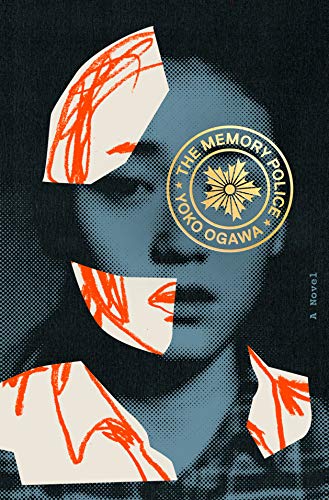The Memory Police by Yōko Ogawa (translated by Stephen Snyder)
(Pantheon, Random House August 13, 2019)
This internationally-acclaimed writer transports you to a disturbing dystopian island where everyone and everything gradually disappears, leaving its vulnerable inhabitants at the mercy of a terrifying totalitarian regime.
Imagine, if you will, waking up knowing something seems strange, eerie and definitely off, but you’re not sure what’s bothering you. Still unsure a few hours later, you chat with your neighbors and you collectively realize all the bells have been removed from your island, or the ribbons have been removed from drawers, or even worse the birds have disappeared from the sky. Adding to the peculiarity, you don’t feel any emotion, sentimental longing, or nostalgia. It’s as if the bells and ribbons and birds never existed in the first place. Despite your complacency, you know life is a living hell for those unlucky few who still feel attached to anything that has vanished. They hide away knowing they’ll be hunted down by the Memory Police and removed from society for remembering the value of anything that dematerializes. This is the premise of Yōko Ogawa’s latest book, originally published in Japanese in 1994, and now expertly translated into English by Stephen Snyder.
Ogawa has won nearly every literary prize Japan has to offer and her popularity is up there with Haruki Murakami thanks to her gentle prose, the detailed portrayal of her characters, and gripping plots which are written with conviction and precision. Fans of Murakami will see similarities in Ogawa’s writing style and the way she interweaves fantasy with reality but they’ll also appreciate her softer and more delicate approach. Onion skins are described as butterfly wings and the finger nails on a child are likened to flower petals as they flutter to the floor, soft and transparent. . . .
Read the full review on Books on Asia












